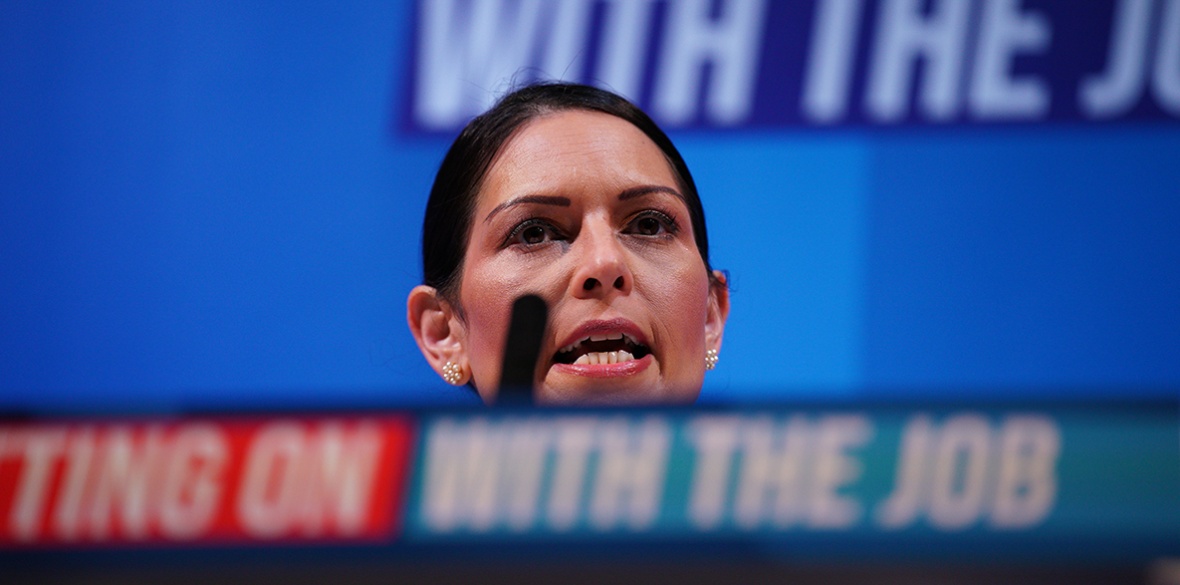This is the last article you can read this month
You can read more article this month
You can read more articles this month
Sorry your limit is up for this month
Reset on:
Please help support the Morning Star by subscribing here
PRITI PATEL’S secret policy of seizing phones from Channel-crossing asylum-seekers and extracting data was unlawful and breached their human rights, the High Court has ruled.
The blanket policy, which operated in 2020, saw nearly 2,000 phones confiscated from new arrivals, some of whom were threatened with criminal penalties if they did not hand over their PIN numbers.
Three asylum-seekers subjected to the policy took the Home Secretary to court arguing that the seizure of their phones and extraction of data was unlawful.
During the case, the Home Secretary conceded that some elements of the policy were unlawful, but maintained that she had the right under a power in the Immigration Act 2016 to seize and extract data from phones.
Defending the policy, Sir James Eadie QC, representing Ms Patel, told the court in January that extracting data from phones would help to identify and potentially catch people-smugglers.
But the High Court ruled today that the Home Office did not have parliamentary authority to operate the policy and that the legal power the Home Office thought it could use was the wrong one.
The court also ruled that the policy breached the three claimants’ human rights.
Ms Patel, who initially denied the existence of the policy, has self-referred herself to the Information Commissioner over potential breaches of data rights, the court also heard.
The judges have called for a further hearing to consider this.
Lawyers representing the asylum-seekers welcomed the ruling.
Clare Jennings of Gold Jennings said: “Such systematic extraction of personal data from vulnerable asylum-seekers, who were not suspects in any crime, was an astonishing and unparalleled assault on fundamental privacy rights.”
Daniel Carey of Deighton Pierce Glynn said: “Nearly 2,000 phones were taken from migrants in an indiscriminate blanket policy that the High Court has now found to be unlawful on multiple fronts.
“All of this had real impacts on very vulnerable people, who lost touch with their families and couldn’t get their asylum documentation, while the phones languished on a shelf for many months, many which now cannot be returned.”
Lucie Audibert of Privacy International, which intervened in the case, said the policy was in line with the government’s effort to “criminalise migration and rob migrants of their basic human rights.”
A Home Office spokesperson said: “We are considering the judgement and it would be inappropriate to comment further at this stage.”

 Bethany Rielly
Bethany Rielly










